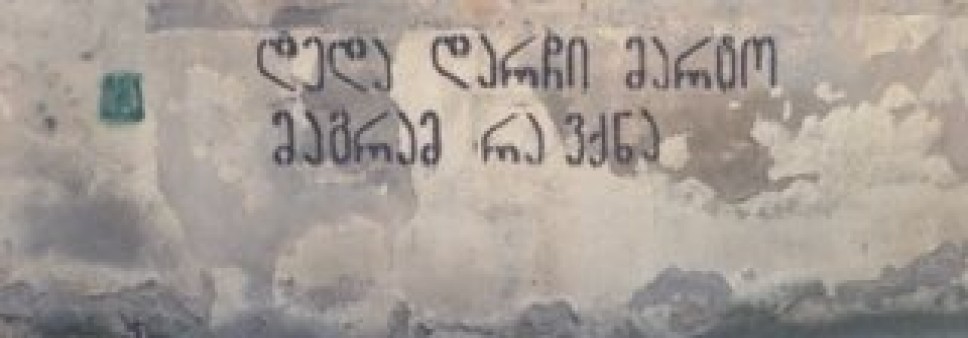Comments regarding dissemination of the secret phone recordings by Rustavi 2
Yesterday, on May 10, after a prior announcement, Rustavi 2 talk-show “Different Accents” broadcasted secretly recorded phone conversations between government leaders, opposition politicians and businessmen. The dissemination of the recordings was preceded by the special statement of the General Prosecutor’s Office, which announced that disclosure of private communication, including by media, constituted a criminal act. Similar statement was made by one of the leaders of the ruling party and the Head of the Human Rights and Civil Integration Parliamentary Committee – Eka Beselia. Beselia specified, that by keeping illegally obtained recordings, Rustavi 2 was violating the Criminal Code of Georgia.
Such statements right before the broadcast of the recordings can be perceived as a warning towards Rustavi 2 that the latter should not disclose the recordings. Indeed, few hours after the recordings were broadcasted, the General Prosecutor’s Office issued a new statement, which declared that the General Prosecutor’s Office had started an investigation on illegal obtaining and dissemination of the recordings under Article 158.3 of the Criminal Code of Georgia. It should be emphasised, that the statement of the General Prosecutor’s Office does not specify against whom the investigatory proceedings were initiated: against Rustavi 2 or against the persons who originally obtained those recordings later to be transferred to Rustavi 2.
The signatories to the present statement clarify, that prosecution of media representatives for obtaining and disseminating secret recordings is not acceptable. Rustavi 2 is protected by the Law on Freedom of Speech and Expression, according to which:
“A person shall be relieved from the liability if the purpose of disclosure of a secret was protection of the lawful interests of the society, and if the protected good exceed the caused damage.” (Article 12.2)
“The freedom of expression shall not be restricted by the reason of inviolability of a private life and protection of a personal secret with respect to an event that should be disclosed for the exercise of the public self-government in a democratic society.” (Article 12.3)
The activities of Rustavi 2 are also in full conformity with the Georgian Code of Conduct for Broadcasts (Georgian National Communications Commission, Resolution No 2, adopted on March 12, 2009, Tbilisi). The Code stipulates that secret filming or recording for gathering and broadcasting information is warranted when:
“The event falls within the public interest, there are reasonable grounds to suspect that further material evidence can be obtained and it is necessary to ensure accuracy of the programme.” (Article 34.14)
“Secret recording on private property is justified only in the name of public interest, including where there is a good reason to believe that evidence of a crime can be revealed.” (Article 35.15)
The high standard of media freedom is established by the Criminal Procedural Code of Georgia as well. According to the Article 50, paragraph “t” of the Code, a journalist is not obliged to testify as a witness regarding the information that he/she had received during his/her professional activities as a journalist. According to the Law on Freedom of Expression and Speech,
“Everyone except for administrative agencies enjoy the right to freedom of expression that implies the right to whistleblow and protection of the whistleblowers”. (Article 3, paragraph “ი”)
“The source of a professional secret shall be protected by the absolute privilege and no one shall be entitled to demand the disclosure of this source. In case of a court dispute on restriction of freedom of speech, the respondent shall not be imposed the obligation to disclose a confidential source of information”. (Article 11.1)
The comments addressed towards Rustavi 2 from the government officials, such as the Prime Minister Irakli Garibashvili, the Vice Speaker of the Parliament Manana Kobakhidze and the Chair of the parliamentary faction Georgian Dream – Democratic Georgia Gia Volski, endanger neutrality of the investigation. Moreover, it is important that the General Prosecutor’s Office explains against whom the investigation under Article 158.3 (disclosure and dissemination of secret private communication) of the Georgian Criminal Code was initiated. In case the General Prosecutor’s Office initiated the investigation against Rustavi 2, this could become a dangerous precedent of restricting freedom of expression in the country. Such a development would increase legitimate doubts, that the recent actions of the General Prosecutor’s Office were motivated by the governmental interests, namely, not to disclose the recordings and, as a result, to avoid disclosure of the crime.
We consider that the primary aim of the state institutions, at this stage, should be to identify who and within what capacity had recorded the persons that are featured in the phone conversations aired by Rustavi 2. Using any punitive measures against media for disclosing these recordings is impermissible, as the media had the full right to do so within their professional activities.
International Society for Fair Elections and Democracy (ISFED)
Transparency International Georgia
Civil Development Agency (CiDA)

